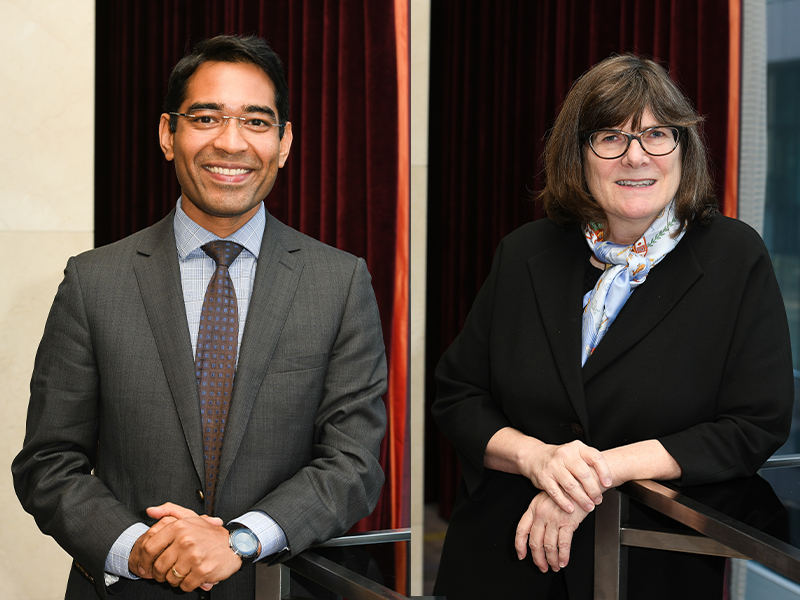

Responsible investing can drive stronger risk-adjusted returns and is increasingly being seen as a tool for prudent risk management, but defined contribution plan sponsors must understand target-date fund managers’ varying approaches to implementing environmental, social and governance factors into these funds.
DC plan sponsors have myriad challenges to address when considering ESG investing options, including the best financial interest of members, balancing ESG risk against other important risk factors and the numerous responsible investing approaches taken by managers, said Satwik Misra, director of institutional business development and client relationships at Sun Life Global Investments Inc., during Benefits Canada’s 2022 DC Investment Forum in late September.
Managers’ approaches to ESG vary and include positive or negative screening, ESG integration, sustainability focus, impact-first investing and philanthropy investing.
Negative screening can be a form of risk mitigation, but seeking to avoid certain investments “is not necessarily going to lead to real world change” because plan sponsors give up the ability to engage with companies and improve their sustainability, said Jenifer Rush, head of responsible investing and manager research at SLGI, also speaking during the session. It also shrinks plan sponsors’ investment universes and potentially gives them unintended overweight exposures in their portfolio.
Meanwhile, positive screening is thematic and about aligning with a sustainability objective, such as investing in renewable energy companies. DC plan sponsors can adopt positive screening by building a portfolio based on companies that are highly rated by ESG ratings firms, though Rush also noted that ESG ratings agencies can vary significantly in their evaluation of the same company.
ESG integration, the most common form of responsible investing, is when managers incorporate ESG factors into their philosophy and into asset selection, rebalancing and risk decisions. She said this approach gives managers deeper insights into companies’ ESG business issues and should help drive long-term, real-world change. SLGI believes “having better information would [also] lead to better long-term risk-adjusted returns,” she added.
Read: Panel: Bâtirente, KPMG and Western University share DC plan journey to ESG
Rush suggested plan sponsors that are evaluating an investment manager using ESG integration look for a commitment to the “complex” work involved. “You want to see the time, the discernment, the resources dedicated. . . . It does require that deep, evolutionary commitment, so it’s going to change [over time]; it’s not a set it and forget it [strategy].”
A sustainability focused approach integrates sustainability objectives, but also considers competitive returns an important part of the strategy. “You’re starting to think about having a social and environmental goal and we see a lot of research that younger people really want this type of investment,” she said.
This approach often starts with an investment screening process and involves investing in companies with a core function that contribute to a specific ESG solution. The potential downsides are a more restricted investment universe and difficulty evaluating the impact of an investment, said Rush.
“I can tell you how a fund performs versus its benchmark. I can tell you the alpha. I can tell you all those things. But it’s very difficult to measure the impact. There’s a lot of work being done really trying to think about that, but most of the evidence would be anecdotal.”
She also noted sustainability focused fund providers typically have a shorter track record of around three or five years, which can make it difficult for plan sponsors to evaluate their performance.
Read: Expert panel: How ESG-focused TDFs could impact workplace CAPs
Target-date funds themselves present another layer of ESG challenges, noted Misra. “One of the things we need to be mindful of as we look at target-date funds is there are so many things going on at the asset allocation level and some asset classes are just so hard to make ESG-friendly — think about government bonds, think about emerging markets.”
He suggested that plan sponsors question whether there are specific ESG commitments or outcomes in a target-date fund’s investment objectives or strategies and where the fund manager is on their own sustainability journey. “Target-date funds were designed . . . with a focus on driving financial performance results first and now we see managers including or embedding ESG within these portfolios. For that very reason, you have to unpack the solutions . . . and understand what is going on within these portfolios.”
Rush also recommended that plan sponsors consider their target-date fund provider’s dedicated ESG investing resources, what kind of collaborations they’re involved in and whether the plan sponsor and provider are on similar ESG journeys.
Read more coverage of the 2022 DC Investment Forum.
